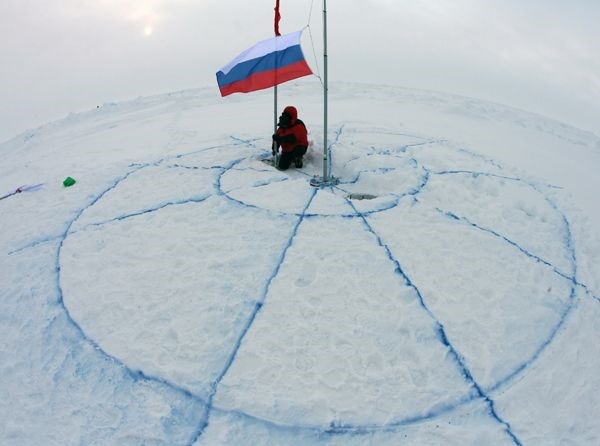Danish intelligence: Expansion of Arctic shelf could lead to worsening relations with Russia
The expansion of the Russian continental shelf in the Arctic, among other issues, may lead to the worsening of relations between the Russian Federation and Denmark, whose claim to an arctic shelf overlaps with a Russian one, as reported by the newspaper Berlingske, based on a report by the Scandinavian Kingdom’s military intelligence devoted to the analysis of threats to the country until 2030.
"The Kingdom may face a new challenge if Russia, as it is expected, receives an answer to its claim from the UN commission regarding the continental shelf boundaries before Denmark does,” the document notes. It goes on to say that, “All parties realize that it is important to respect international law, however, there is a risk that if the Russian claim is approved, while the Danish application is still under consideration, that Russia will believe that the Commission’s recommendations are final.”
The intelligence agencies note that this situation can become "a source of tension in Danish-Russian relations."
Danish experts contacted by Berlingske, agree that indeed Denmark will be at a disadvantage during negotiations with the Russian Federation as its claim application will be approved by the Commission no sooner than 2022-2023. The Russian application, according to Danish journalists, will be approved next year.
A report by the diplomat Peter Taksøe-Jensen, prepared at the request of the Danish Government states that "there are signs that Russia is forming a new, stricter Arctic policy."
A representative of the ruling Liberal Party of Denmark on the issues of foreign policy, Michael Aastrup Jensen, in turn, told Berlingske that any possible territorial disputes between the two countries will be settled peacefully in accordance with international law. "In case of an Arctic dispute, Russia will pursue a diplomatic solution. We have no reason to assume otherwise," he noted.
In December 2014, Denmark and Greenland, which has autonomous status within the Kingdom of Denmark, reported its territorial claims on the North Pole and 895,000 square km of the bottom of the Arctic Ocean after spending 50 million dollars to collect data to confirm that the Lomonosov Ridge on the ocean bottom is a continuation of the Greenland continental shelf. This claim by the Kingdom is the fifth one, there are three earlier submitted claims that were partially approved by the Commission.
Russia submitted its claim to the UN in 2001, and in February 2016, they presented an updated version to the UN. Russia’s plans included the accession of the Lomonosov Ridge and other areas of the seabed including the Podvodnikov Basin the Mendeleev Ridge, the southern part of the Gakkel Ridge and the North Pole zone. The total area of the shelf claimed by Russia is 1,191,000 square km. The areas claimed by the Russian Federation and Denmark partially overlap.
As was reported earlier by the Foreign Ministries of Russia and Denmark, the overlapping shelf areas claimed by the two countries in the high-latitude Arctic "will be demarcated through negotiations in accordance with international law, however, the Commission on the Limits of the Continental Shelf should first confirm that the areas of the seabed claimed by Russia and Denmark are really a continental shelf," At the same time, Denmark stated that they do not intend to change their claim.
Norway, the USA, and Canada also claim various areas of the bottom of the Arctic Ocean. Countries’ interest in the Northern Seas is motivated by the fact that, according to last estimates, their subsoil contains nearly 83 billion tons of conditional fuel. About 80% of its reserves are in the Barents and Kara Seas.
